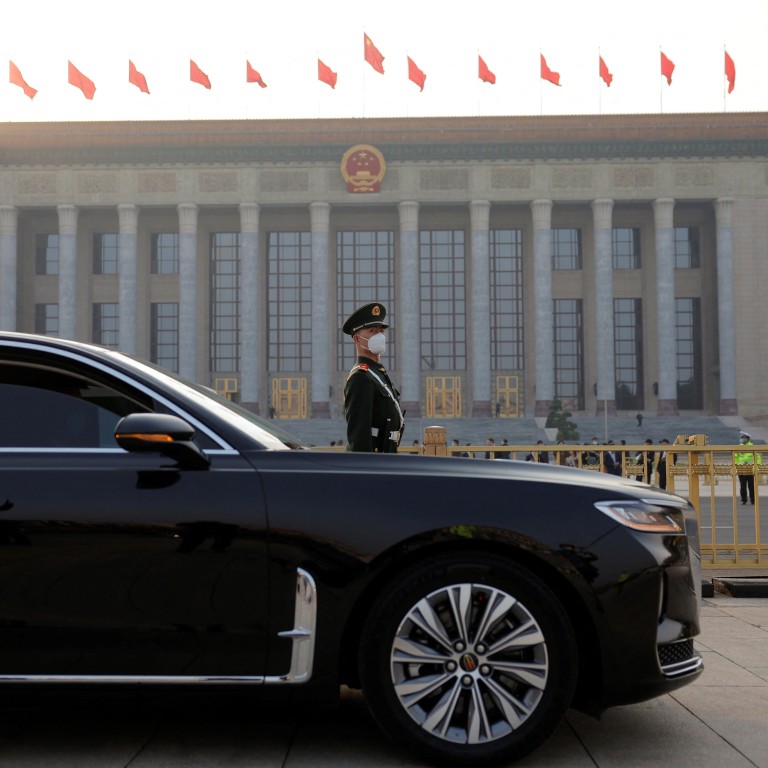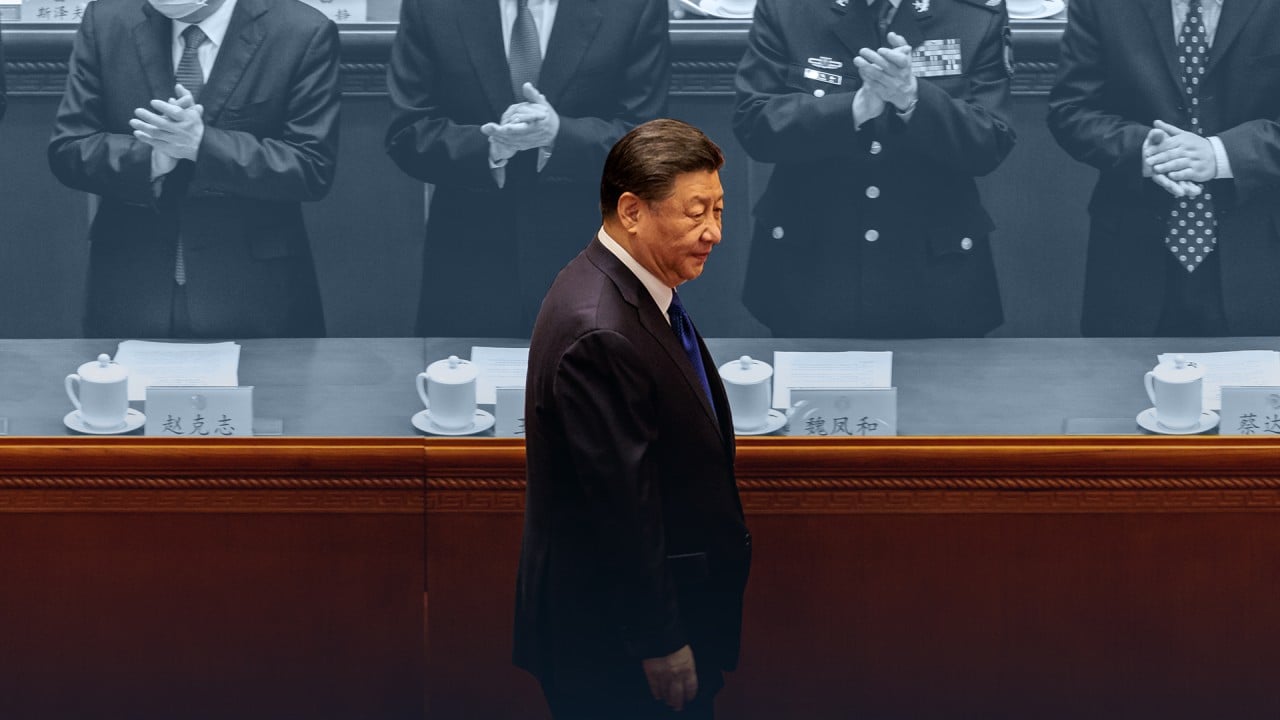
China’s ‘two sessions’ 2023: new laws to counter foreign sanctions planned
- Chinese officials and firms have been hit by Western sanctions in recent years, with the Ukraine war threatening to escalate matters further
- A draft law unveiled last year said countermeasures would be taken if the country’s key interests were threatened
China will use legal means to counter the impact of foreign sanctions, according to a spokesman for the country’s legislature.
Wang Chao, a spokesman for the National People’s Congress, said on Saturday that the parliament has already started working on foreign policy legislation.
“Some countries have kept abusing the extraterritorial application of their domestic laws in violation of international law, with the aim of taking down foreign entities and individuals and serving their own interests.
“Such bullying acts are widely criticised in the international community as long-arm jurisdiction. China stands firmly against such practices,” Wang said.
What are China’s ‘two sessions’ and why do they matter?
“It is necessary for the law to make the principle stipulation to counter and repeal such measures. China’s core interests allow no infringement,” he said.
“For acts that undermine China’s sovereignty, security and development interests and harm the lawful rights and interest of the Chinese nation, the law contains relevant provisions to firmly counter such acts. This is both justifiable and necessary”.
China released a draft foreign relations law in December, which stipulated that countermeasures would be taken if the nation’s sovereignty, security and development interests are undermined by acts that have violated international laws and international relations norms.
The draft also said there should be no protectionism and unilateralism in trade.
The war has deepened divisions between China and Europe, which sees Beijing as a competitor and systemic rival.
But Wang said relations between China and the European Union have grown steadily since last year, with Chinese President Xi Jinping meeting French President Emmanuel Macron, German Chancellor Olaf Scholz and European Council President Charles Michel.
What will China’s ‘two sessions’ 2023 bring?
“There is no fundamental strategic disagreement or conflict but rather broad common interests and cooperation built up over many years,” Wang said, adding China sees Europe as a strategic partner.
“In recent years, we’ve seen some people claiming that China and Europe are systemic rivals and they’ve been playing up the so-called China challenge or China threat. Fundamentally speaking, such rhetoric is driven by the cold war mentality and ideological biases. It is intended to serve their selfish interests”.
Wang also denounced Western criticisms that China is creating a debt trap in Africa, saying data from the World Bank has shown that multilateral financial institutions and commercial creditors account for nearly 75 per cent of the continent’s overall external debts.
The gathering will also see the new government line-up unveiled and deputies will deliberate on plans to reform party and state institutions.
Additional reporting by Mia Nulimaimaiti



